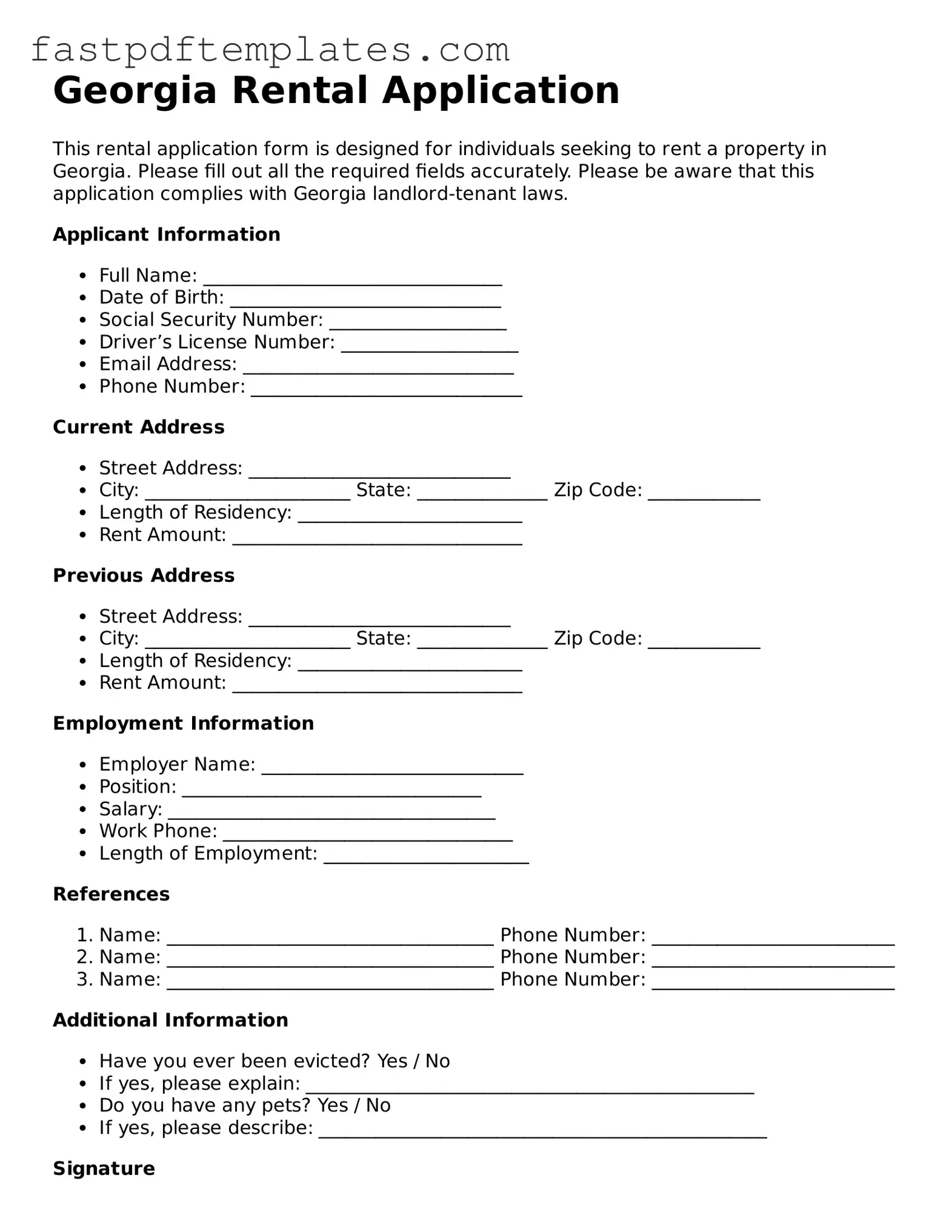The Georgia Rental Application form is similar to the standard lease agreement. Both documents serve to establish the terms of a rental arrangement between a landlord and a tenant. The lease agreement outlines the specific conditions under which the tenant may occupy the property, including duration, rent amount, and responsibilities for maintenance. While the rental application focuses on gathering information about the potential tenant, the lease agreement formalizes the relationship once a tenant is selected.
Another similar document is the tenant screening form. This form is often used by landlords to assess the qualifications of potential tenants. It typically requests personal information, employment history, and references. Like the rental application, the tenant screening form aims to evaluate the applicant's reliability and suitability for renting the property, ensuring that landlords make informed decisions.
The rental history verification form also shares similarities with the Georgia Rental Application. This document is used to confirm a tenant's previous rental experiences. It typically includes questions about past landlords, payment history, and property conditions. Both forms seek to establish a tenant's credibility and reliability, providing landlords with a clearer picture of the applicant’s history.
The employment verification form is another document that parallels the rental application. This form confirms an applicant's employment status and income level. Landlords use it to assess the applicant's ability to pay rent consistently. While the rental application collects this information upfront, the employment verification form serves as a secondary check to validate the claims made by the applicant.
The credit application form is closely related to the rental application as well. This document allows landlords to evaluate an applicant's creditworthiness. It typically includes a request for the applicant's Social Security number and permission to run a credit check. Both forms aim to provide insights into the applicant’s financial responsibility, helping landlords mitigate the risk of non-payment.
The background check consent form is another document that aligns with the rental application. This form grants landlords permission to conduct a background check on the applicant. It often includes inquiries about criminal history and other relevant factors. While the rental application gathers initial information, the background check consent form allows landlords to delve deeper into the applicant's past, ensuring they select a responsible tenant.
Finally, the roommate agreement form bears similarities to the Georgia Rental Application. This document is used when multiple tenants share a rental property. It outlines the responsibilities and expectations of each roommate. Like the rental application, it aims to clarify the dynamics of the living situation, ensuring that all parties are aware of their obligations and rights, thus fostering a harmonious living environment.

